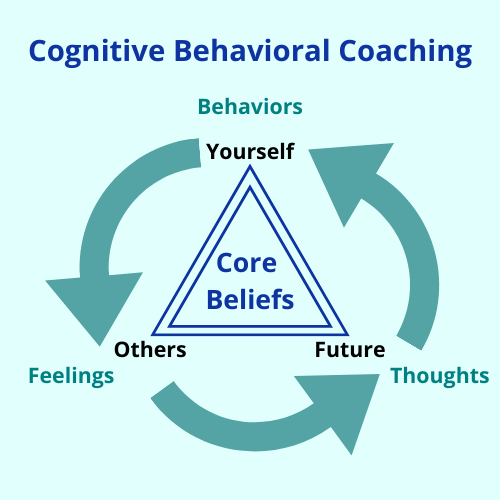
Cognitive behavioral coaching aims in supporting individuals to develop coping strategies and thinking skills to overcome a cognitive or emotional block to achieve their full potential.
It rests on the premise that: “the way you think about events, profoundly influences the way you feel about them” (Neenan & Dryden 2002).
In 1994 Albert Ellis concluded that: “The emotional disturbance is caused not by the activating event, but by the mediating beliefs about the activating event.” This translates to:
- Emotional Disturbance = Stress & Worry
- Activating Event = Speaking in an event (as an example)
The problem is not the problem per se, but your attitude — shaped by your core beliefs — towards the problem.
The objective of Cognitive Behavioral Coaching is that in order for the Client to achieve their goals the Coach needs to help create self awareness! This leads to:
- developing thinking and behavioral skills
- developing the client’s capability for self-coaching
To do all of this, Socratic Questioning comes into the picture:
- The Client expresses a belief, an opinion or a thought
- The coach asks questions
- Clarifying questions
- Challenges assumptions
- Evidence and reasoning
- Alternative viewpoints
- Implications and consequences
- Challenging the question
- The Client reformulates to find a more helpful expression
(From: “The Complete Handbook of Coaching” by Helen Williams, Stephen Palmer and Nick Edgerton)